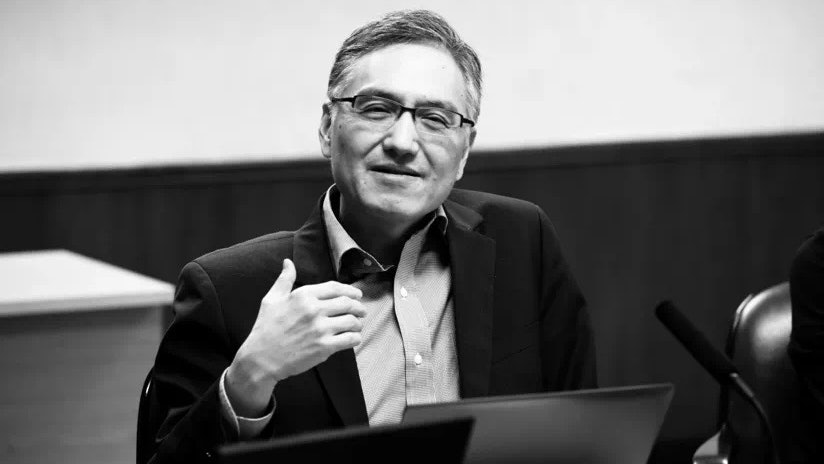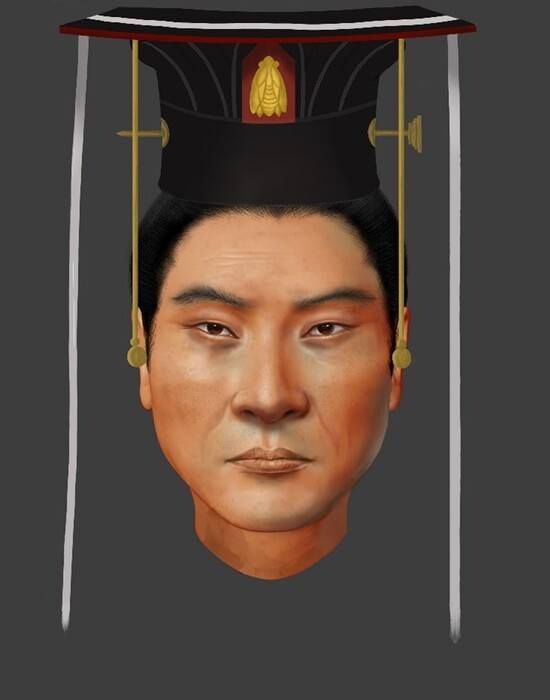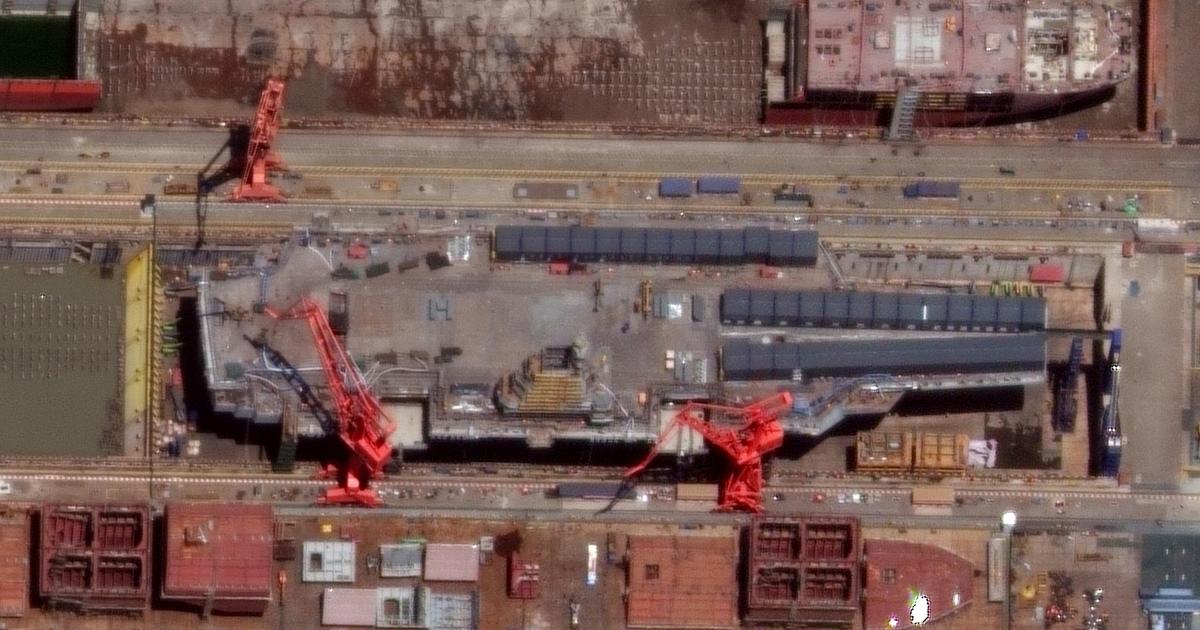On February 5, Mr. Zhu Yunhan, academician of Academia Sinica and professor of political science at National Taiwan University, died of illness at the age of 67.
In the past two days, I have seen many people posting memorials and condolences.
The author does not know Zhu Yunhan, but I have read some of his works and articles like most people, but I am still very shocked to hear the news of his death, because 67 years old is not considered old today, and for an academically For academics with aspirations, this age is precisely the stage when they refine and sublimate their lifelong research to form a system.
But each of us, no matter what social class we are in or where we are, cannot finally compete with death and escape illness and death.
Academic circles on both sides of the strait mourned Zhu Yunhan one after another. Naturally, it is related to his academic contributions and ideological achievements during his lifetime, his contribution to the rise of China and the reunification of the motherland, and his respect for real issues and independent thinking as an intellectual. related to the pursuit.
The latter point is especially difficult for scholars in Taiwan.
On the one hand, this is determined by the current cross-strait and Sino-US relations. On the other hand, it is also directly related to the internal atmosphere in Taiwan, because as "the most dangerous place on earth", everything in Taiwan today is easy to be politicized. Unconsciously and automatically enter the vortex of "political correctness".
Most of the scholars in this vortex choose to conform to such political correctness, because it is the easiest way to do so.
Another Taiwanese scholar who has interviewed many times before has privately expressed his pain in Taiwan's academic circles many times, and how he was excluded because of different views and positions.
Zhu Yunhan made no secret of his understanding of democratization, the decline of American hegemony, and the rise of China, and he tried his best to call on Chinese humanities and social science workers to abandon the inertia of "vassalism" and forge their own path.
For example, he pointed out in an article entitled "Breakthrough and Transcendence: Chinese Politics in the 21st Century" that "Chinese scholars must have clear and conscious practical goals, and test the correctness of knowledge and theory through practice. Literacy. Across the past and present, look at the world, don’t be complacent, don’t repeat the same mistakes, start with a deep understanding of the society you live in and the historical experience you have inherited, and comprehensively carry out social exchanges and dialogues with different civilization systems, and don’t forget your original intention. To re-establish the humanities The academic tradition based on self-cultivation requires a solid methodological foundation and critical thinking training; there must be an independent personnel training mechanism and not be an academic vassal.”
The Department of Political Science of National Taiwan University issued an obituary, stating that Zhu Yunhan's academic achievements are especially respected by the international academic circle.
(Department of Political Science, National Taiwan University)
Zhu Yunhan's remarks not only lament the reality of the widespread existence of academic vassalage, but also express his hope that Chinese scholars will break out of their own way.
Because China's practice has indeed provided the Chinese academic circle with an excellent historical opportunity.
For example, in an article in the book "Gao Si Zai Yun", Zhu Yunhan wrote, "I often remind European and American political scholars that the governance challenges China faces are unique and complex, and have surpassed the current mainstream Western political theory and knowledge. We have to imagine that China’s political system must deal with the challenge of effective governance in a giant country with a population 2.6 times the size of Europe. In Europe with a population of only 500 million, the institutional experiments of the European Union and the euro have not yet been implemented. If it can prove sustainable, a Greek debt crisis is enough to shake the foundation of the euro; Western political scholars should not be self-inflated, thinking that the current mainstream political science is really capable of guiding China how to build a long-term political system. The experience of public governance will appear to be insufficient in the face of China's current historical situation, and the Chinese can only explore their own political and governance ways."
In 2018, he also expressed similar views in an exclusive interview with Asia Weekly.
"I often tell Western political scholars that no matter how many political theories we have and how much practical experience of Western political systems we have summed up, we must always remain humble. Don't pretend that our existing knowledge and theory can guide a country with a population of 1.3 billion. How a big country should be governed is a kind of self-inflated psychology. In the past, the West was superior to China in many indicators, but in terms of the successful implementation of Western democracy, we must realize that even if the entire Western world is combined, the population is still smaller than China Moreover, the implementation of democracy in the West is not necessarily successful. Even Nordic countries and the United States, which are worth learning, still have problems in their national systems. For example, the average national income of the United States is at least six times that of mainland China, but its absolute poverty population is astonishing , the average life expectancy is about to be caught up by China, and China’s goal is to completely eliminate absolute poverty before 2020. Before making any comments on China’s political system, we should be deeply aware that our knowledge is limited and we do not have the truth.”
Pulling reality to the scene of history, to the 20th century, without being an academic vassal, we can easily think of Lu Xun.
Recently, I read the new biography of Lu Xun written by Wang Xiaoming, a professor of the Department of Cultural Studies and Chinese Department of Shanghai University. In the preface to the triptych, Wang Xiaoming wrote, "He (Lu Xun) was not mistaken. The Chinese society in that era was crumbling. Xingxing, but still able to inspire and bear his criticism and exposure, not so weak that it can be out of control with a harsh whistle. In this sense, the thoroughness of Lu Xun's thinking may not be regarded as society is still salvageable A piece of evidence, if there is no more people like him, society will really come to an end.”
The previous hit TV series "The Age of Awakening" revived people's nostalgia for Lu Xun.
The picture shows the actor who played Lu Xun in the play.
(still photo)
Going back from history to reality, and back to the 21st century we live in, people still miss Lu Xun, and still hope that people like "Lu Xun" will appear, because the reality is not satisfactory.
Li Shulei, the current Minister of Propaganda, wrote in his early articles, "The mediocrity of writers other than Lu Xun in terms of mind, emotion, personality, thought, and literary talent is depressing. We have suffered so much and experienced so much joy and sorrow. , but we have no real deep understanding and reflection on our own experience. We are still blind people engulfed by history, and we have not yet been able to objectify history and ourselves. This is true of literature, and so is the academic and ideological circles. I think We have not yet awakened from the fatal blow of foreign culture in the 19th century, and have not yet established normal cultural will, cultural rationality and cultural competence.”
Not to be an academic vassal, to objectify oneself, and to rebuild the organic connection between theory and practice based on Chinese practice. This is Zhu Yunhan's hope during his lifetime, and it is also an important mission shouldered by the Chinese academic circle.
China's profound traditional culture and rich social practice have provided rare opportunities for Chinese academic circles. The problem is that today's Chinese academic circles can really seize this historical opportunity to "build a heart for the world, a life for the people, and a legacy for the past." Absolutely learn to bring peace to the world"?
Famous political scientist Zhu Yunhan passed away Insights into the historical changes between the decline of the United States and the rise of China "War" is a key word that cannot be avoided in Taiwan's 2024 general election Interview with Zhou Rong of Tsinghua University|Utopian urban governance behind the transformation of Beijing Bar Street Beijing Sanlitun Bar Street : A Miniature Sample of China's Development






